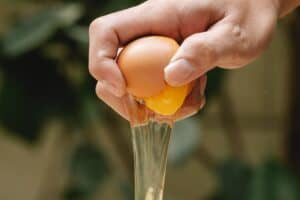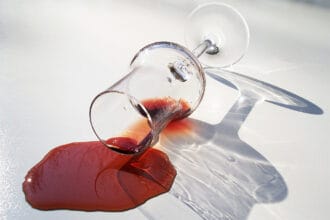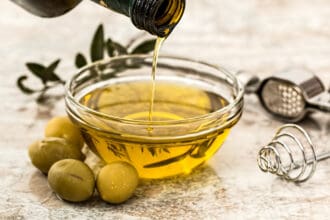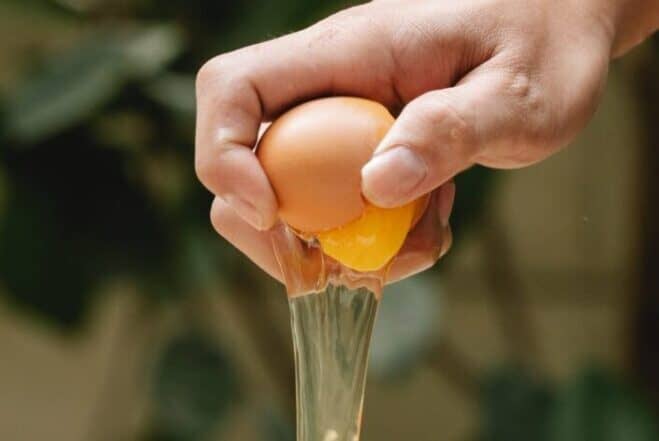
via: Pexels / Klaus Nielsen
If you want to brush up on your knowledge of the different types of eggs, you're at the right place.
As your resident foodie expert featured in sites like Edible Arrangements and Your Tango, I have everything you can want to know about egg types and egg products. Most people can only think of hen's eggs, but I'm here to widen your knowledge and taste buds.
Let's crack this one!
Contents
9 Best Types of Edible Eggs
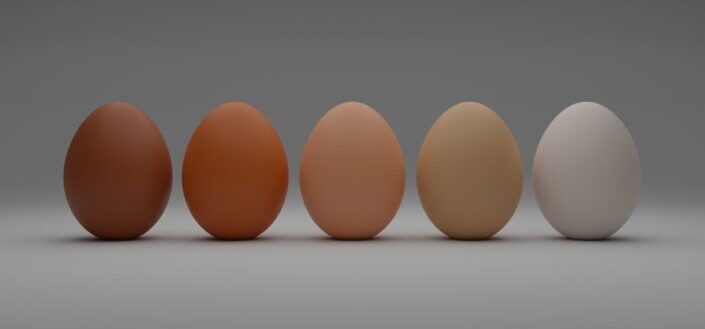
via: Unsplash / Shubham Dhage
Eggs are one of the most nutrient-dense food ever to grace our world. Proteins, fats, vitamins, you name it. Eggs have it. That is why it's just right that we know about the best types of edible eggs. If we're narrowing them down, you must understand that there are two groups of eggs: fish and bird eggs. Here, we'll dig deeper into the best ones!
1. Chicken Eggs
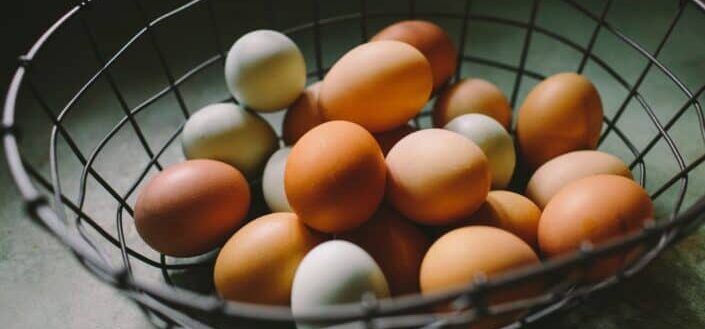
via: Unsplash / Natalie Rhea
We all know about this. Most of us have probably cooked this egg at least once in our life. We're all familiar with the standard white eggs, but did you know that there are many kinds of chicken eggs, and they all vary in color? The eggshell colors will differ depending on the breed, but they all range from white eggs to brown eggs.
So, what colors other than the standard white are there?
Brown Eggs: Brown eggs are from the Rhode Island Red and similar other chicken breeds.
Light Blue, Light Green, and Light Pink Eggs: These light-colored eggs are all from the Americana breed.
Dark Brown Eggs: These eggs can also look rust-colored or red, and they're from Sexlink, Maran, and Wesummer breeds, among others.
Light Brown Eggs: They're from the Wyandotte breed and look very similar to light pink eggs.
2. Quail Eggs
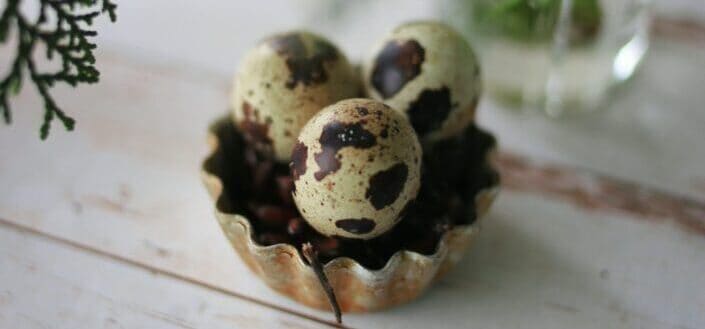
via: Unsplash / Yana Gorbunova
A quail egg has brown dots or specks on them, which makes them easy to identify. Their colors range anywhere from brown to blue to white. Compared to the standard eggs, they're smaller. However, they taste almost similar to regular white chicken eggs. Quail eggs are very special because they're rich in iron and vitamin B12 which are essential vitamins and minerals.
3. Duck Eggs
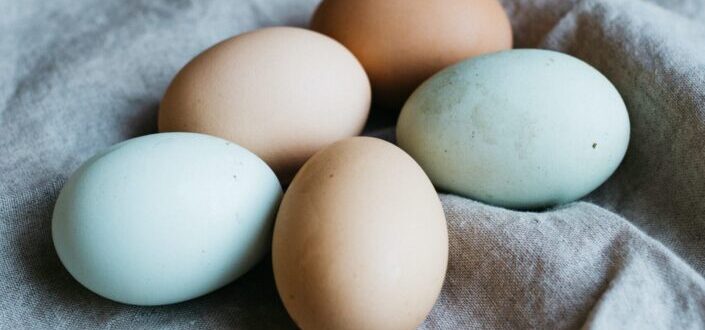
via: Unsplash / Rachael Gorjestani
A duck egg is slightly larger than a standard egg. Duck eggs are more flavorful than chicken eggs, but they have more fat and cholesterol content, so it's best to consume them less frequently. The reason duck eggs have more fat and cholesterol is that they have a bigger (and darker) egg yolk than chicken eggs. A duck egg has a thicker shell and can last fresher for a longer time.
4. Goose Eggs
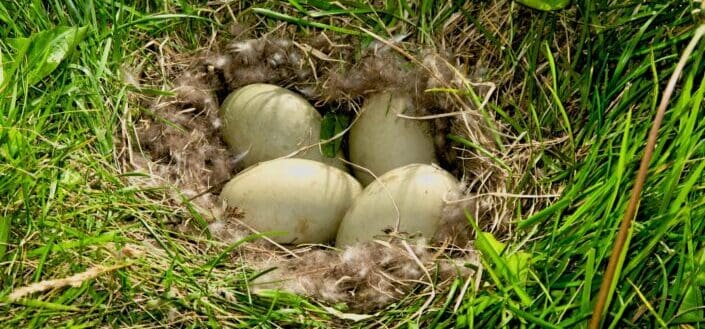
via: Unsplash / Freysteinn G. Jonsson
A goose egg is double the size of a chicken egg, but it's more flavorful! It's safe to say by now that the larger an egg is, the more flavor it will have. Goose eggshells are hard and less fragile compared to those of chickens. But what's harder is trying to find a goose egg. These eggs are uncommon because geese lay only less than 40 eggs a year. Goose eggs are rich in protein, but they are best used sparingly because of the high cholesterol.
5. Bantam Eggs
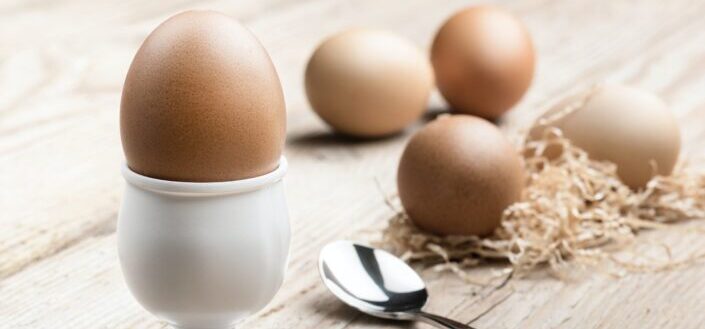
via: Unsplash / Enrico Mantegazza
Bantam eggs are a smaller variety of chicken eggs from a breed called Bantam. Bantam eggs are smooth and silky white and have a runny yolk that's best for poached eggs. Even though these eggs are smaller, they are richer in iron than conventional eggs.
6. Caviar

via: Unsplash / Tyler Nix
Caviar is an unfertilized fish egg. It's also known as roe. It is one of the most exquisite and expensive eggs because caviar imports and exports are closely regulated. Caviar is rich in antioxidants which makes it one of the healthiest eggs ever.
7. Ostrich Eggs
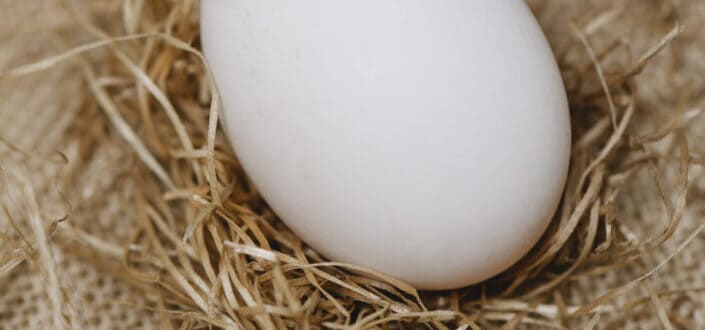
via: Pexels / Klaus Nielsen
Ostriches are the biggest birds on the planet. Their eggs are hard to find, but they go a long way when you do get your hands on one. One ostrich egg is like having 20 large chicken eggs. An ostrich egg eggshell is very thick, which makes it extremely hard to crack open. Despite the size of an ostrich egg, its protein and nutrient content is very similar to a regular chicken egg.
8. Turkey Eggs
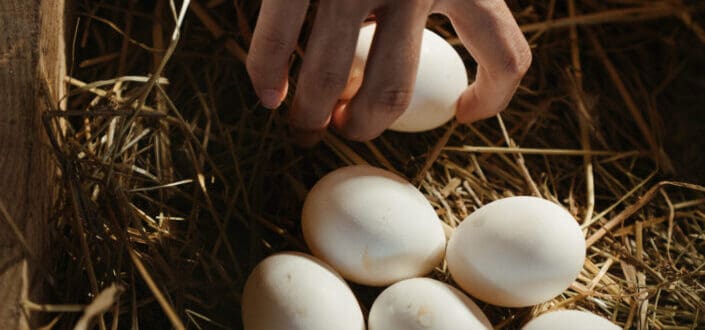
via: Pexels / cottonbro
Turkey eggs are very much like duck eggs, but they have a creamier taste because they have a thicker yolk and egg white. A turkey egg has shell colors that range from white to cream with brown speckles. Turkeys don't lay many eggs in a year, so they're not very common. Egg farmers usually use turkey eggs to have more turkeys instead of selling them as edible eggs.
9. EMU Eggs

via: Unsplash / Samuel Isaac
An emu egg is made up of three layers, each with a different color. The outside layer is dark green, the middle layer is teal-like, and the inner layer is almost white. Emu eggs are very nutritious because they have more good cholesterol than chicken eggs and less bad cholesterol.
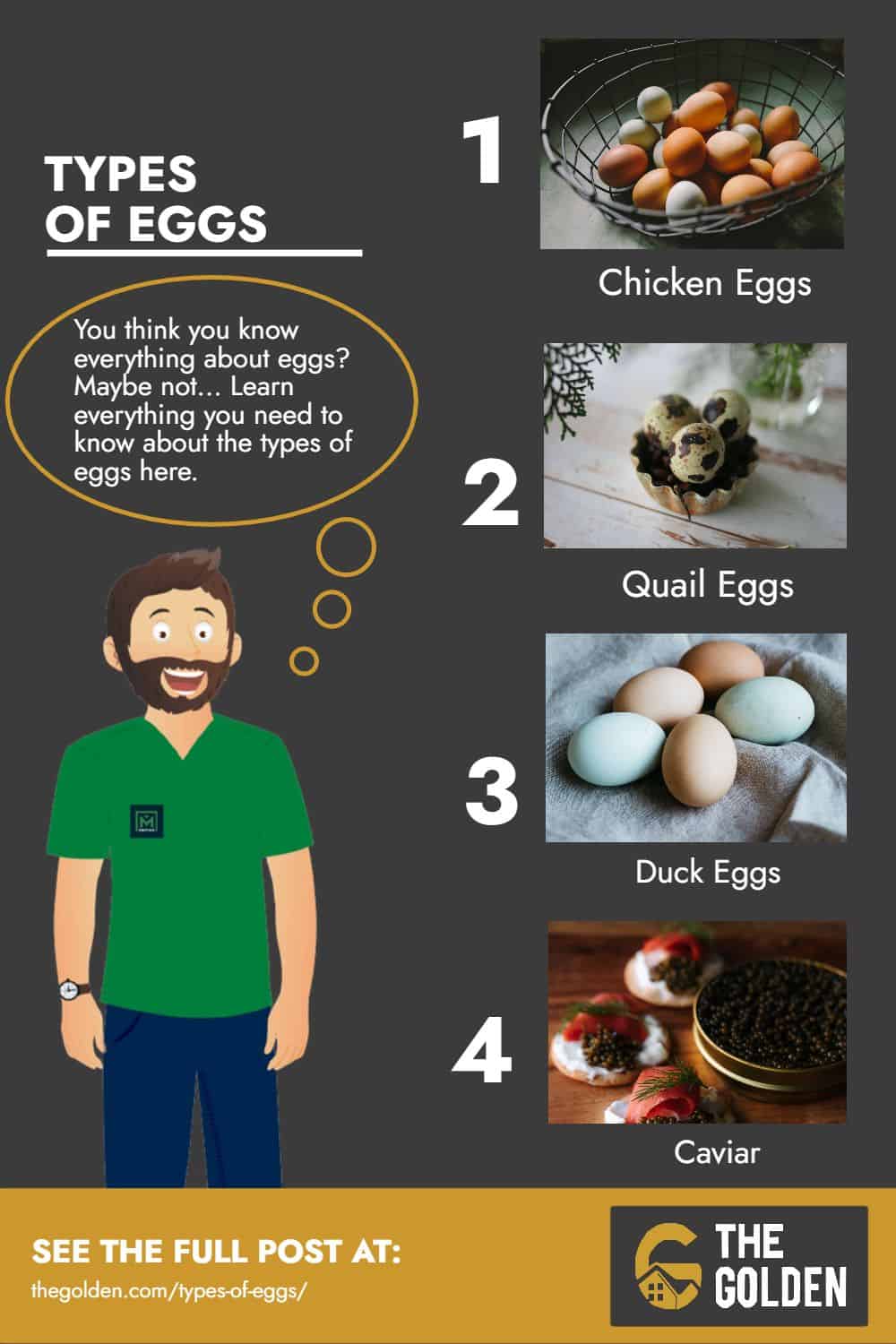
via: The Golden
Share This Image On Your Site
Popular Ways To Eat Eggs

via: Unsplash / Louis Hansel
We all know an egg dish or two, but it's great to know that there are more ways we can cook and eat eggs. Most people might think that cooking egg is very straightforward, but many fail at doing them. Let's learn how to make eggs in different ways!
Way #1: Hard-Boiled Eggs
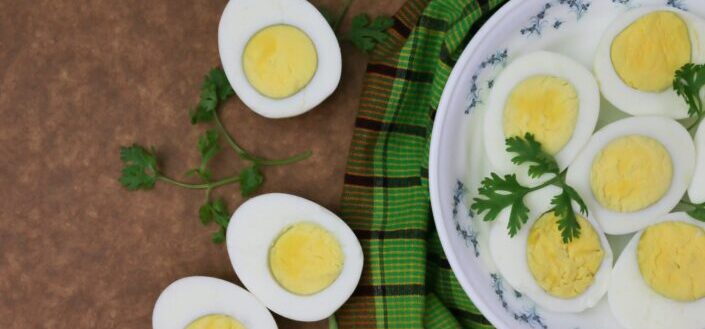
via: Unsplash / Tamanna Rumee
Making a hard-boiled egg is simple. It's cooked in its shell in boiling water. It's called "hard" because the consistency of the egg white and yolk should be hard.
How to cook
Fill a pot halfway with water to cover the eggs by two inches. Bring to a boil, then gently add the eggs and boil for 10-12 minutes.
Way #2: Fried Egg
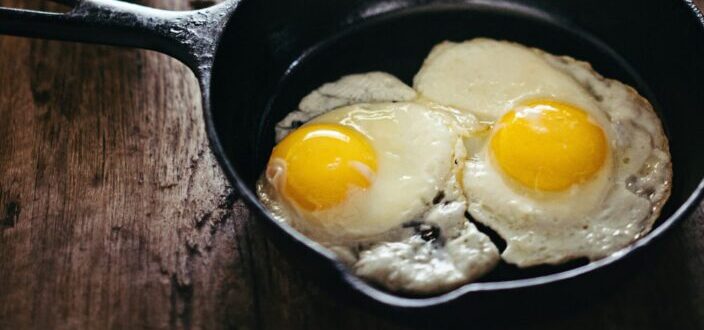
via: Unsplash / Gabriel Gurrola
A fried egg is one of the simplest ways to cook an egg. Depending on the output of the egg yolk that you prefer, you should leave your egg frying for about 1 to 3 minutes.
How to cook
Crack an egg directly into a lightly greased frying pan. Fry your egg until the edges brown. You can flip it if you want an over-easy egg or avoid flipping if you want it sunny side up.
Way #3: Poached Egg

via: Unsplash / David B Townsend
A poached egg gives you the eggs in all its glory without any hard parts or edges. The egg white is cooked through, and the egg yolk is runny. If you want your egg yolk like this, poached egg is the best one for you.
How to cook
Bring water to a boil. To avoid danglers, crack the egg into a mesh strainer and allow the most liquid portion of the whites to fall off. Carefully decant the egg into the water from the strainer. Cook for approximately 5 minutes. Use a slotted spoon to get the egg.
Way #4: Soft-Boiled Egg
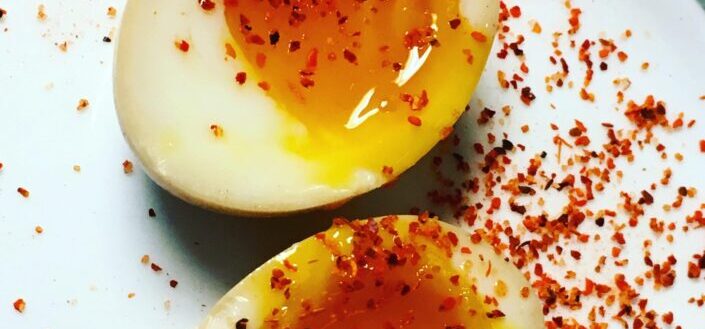
via: Unsplash / Ruben Rodriguez
Making a soft-boiled egg is pretty much like making a hard-boiled one. The only difference is that a soft boiled egg has a cooked egg white but a runny yolk.
How to cook
You cook it the same way you do a hard-boiled egg, but only boil it for 5-6 minutes.
Way #5: Egg Salad
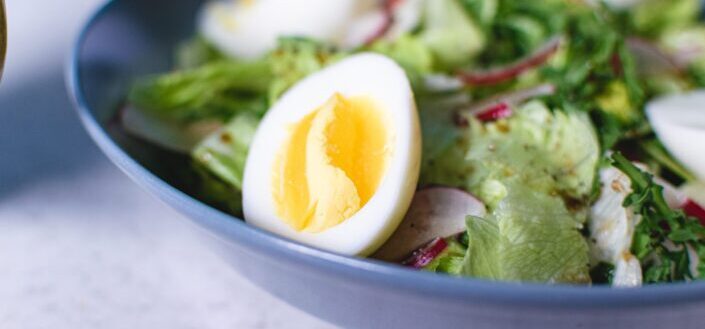
via: Unsplash / Egidijus Bielskis
Egg salad is the perfect egg dish if you have a bunch of leftover eggs that are waiting to be used. Sometimes cooking eggs can be so fun that we forget we cooked too many.
How to cook
All you have to do is hard boil your eggs and let them cool. Once they're cool enough, peel and chop them. Put them in a salad bowl and add other ingredients that you'd like to have. Common ones are celery, onion, and chives. You can also add in a dressing of your choice.
Way #6: Omelet

via: Pexels / cottonbro
Omelets are a lot like scrambled eggs, but there's no need to mix and move the eggs in the pan. Omelets are folded over, and its counterpart is the frittata which is an open omelet.
How to cook
Beat as many eggs as you want and pour them into a hot pan. Cook it slowly over low heat until they're solid enough to eat. You can add toppings such as cheese, tomatoes, onions, or more, and then fold it.
Way #7: Soft Scrambled Egg
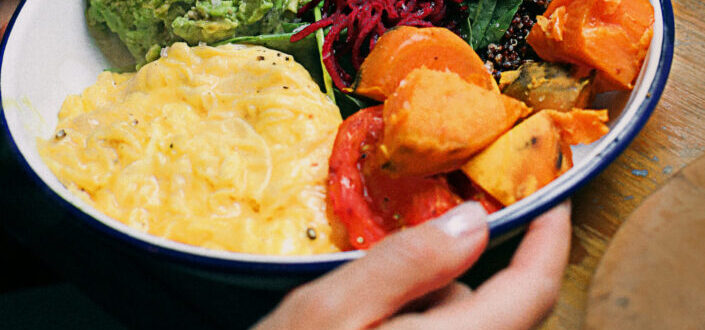
via: Pexels / Daria Shevtsova
These eggs are sometimes referred to as "wet" scrambled eggs. Soft scrambled eggs are fluffy and rich. This egg dish requires more attention and precise cooking technique to get it right.
How to cook
In a separate bowl, whisk your eggs. Heat your pan to medium, butter it, throw the eggs in, and keep an eye on it with a spatula. While they're cooking, turn and fold them several times.
Way #8: Deviled Eggs
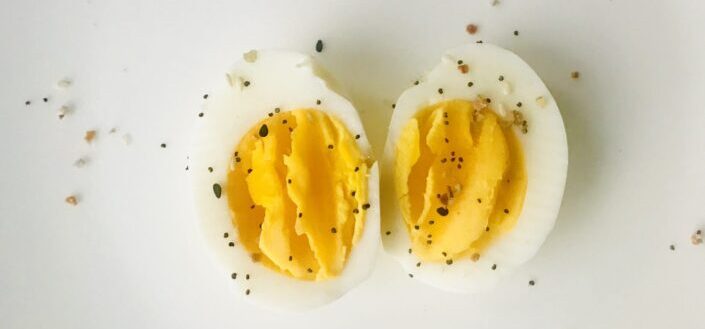
via: Pexels / Mona Sabha Cabrera
Deviled eggs are best for holidays. They are hard-boiled eggs where the yolk is mixed with different ingredients-nothing devilish about it but the great taste.
How To Cook
Cut your hard-boiled eggs in half, removing the yolks. Using a fork, mash the yolks into a fine crumble. Mix in the mayonnaise, vinegar, mustard, salt, and pepper. Fill the egg whites evenly with a heaping spoonful of the yolk mixture.
Things You Need To Know Before Buying Eggs

via: Unsplash / Marga Santoso
Whether you're buying a fish or bird egg, you want to make sure that you're getting the best. There's a lot of considerations to be done when choosing the egg product you buy. It makes sense because there are so many kinds of eggs! Free-range egg, pasture-raised egg, and organic egg. Who really knows what they mean? But they all matter and you need to know these things before you buy!
#1: Egg Grades

via: Unsplash / Fernando Andrade
Egg grades are determined by the quality of the egg inside, as well as the appearance and condition of the eggshell. There are three grades: AA, A, and B. Eggs that are grade AA have firm egg whites. The yolks are round and free of any flaw. The overall appearance of the egg is clean and unbroken. Grade A eggs are almost the same as AA grades, but the egg whites are less firmer but are still great for cooking. Lastly, Grade B eggs have thinner egg whites. Their egg yolks are most likely thinner compared to higher grades.
#2: Types of Eggs Sold In A Market
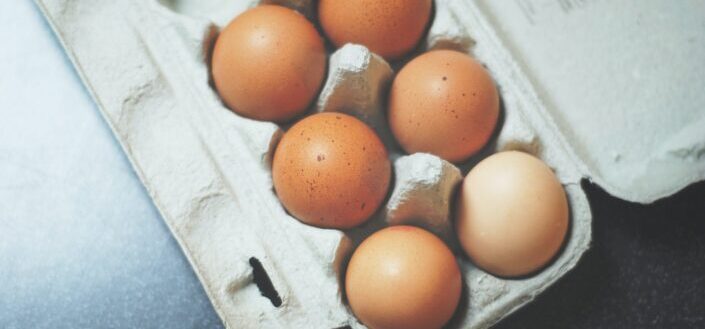
via: Unsplash / Hello I'm Nik
Even in markets, eggs have different types. A raw egg is presented to you in several ways, so depending on what you need, you have to know if an egg is dried, frozen, or fresh.
Dried eggs
Dried eggs are also known as powdered eggs. They have the same nutrients in a fresh egg, but they're in powder form. You just have to add water. They have a longer shelf life and are best used for scrambled eggs and omelets.
Frozen eggs
As long as the shells are intact, frozen eggs are a great option. They can last up to a year, so if you want your eggs to last long, frozen eggs are the way to go. You have to thaw them. They're best used for hard-cooked eggs.
Fresh eggs
Most people prefer fresh eggs because it wasn't long since they came from the egg farms. Unlike dried and frozen eggs, they don't have a long shelf life, but they taste the best. They can be used in any egg dish you want to make.
#3: Egg Colors
Eggs differ in colors because of the breed of the bird that lays them. It also varies in color depending on how long the egg has been formed. Many people think that brown eggs are more nutritious, but egg color doesn't have much to do with the egg's contents. They are all healthy.
#4: Different Eggs Labels and Their Meaning
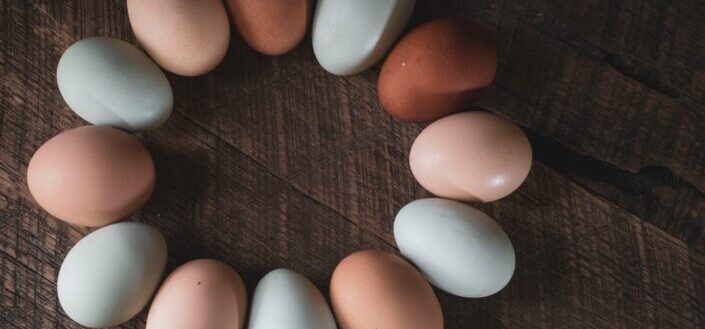
via: Unsplash / Katie Bernotsky
When you're buying eggs, you know that they have different labels. Most couldn't be bothered to learn, but it helps to know what these words mean.
Free-range
Free-range eggs come from birds that have a better quality of life. These birds are permitted to enjoy the outdoors, engaging in natural behaviors. Most people prefer free-range because they weren't kept in cages and have taken time with nature. They aren't prone to diseases that caged birds are prone to.
Organic
Organic eggs are from birds that were grown in cage-free environments. They are fed an organic diet, free from pesticides, antibiotics, and hormones. They're very similar to free-range eggs, but not all free-range eggs have an organic diet.
Pastured
The hens in pasture-raised poultry spend much of their time outside. They may eat bugs as well as vegetables. Seeds, green plants, insects, and worms are consumed by these hens/chickens. These eggs are rich in Vitamin D.
Cage-free
Cage-free eggs mean that the hens weren't kept in cages, but it doesn't mean that they were free to go outside and have an organic diet. They simply weren't kept inside cages.
Omega 3 enhanced
Omega 3 eggs provide more omega-3 fatty acids than regular eggs. They also have more polyunsaturated fatty acid, which is considered healthy fat. Some omega 3 eggs even contain less cholesterol than regular eggs.
Frequently Asked Questions

via: Pexels / Ketut Subiyanto
We have discussed a lot about eggs, but if you still have questions, we've got the answers.
Does egg size matter?
If you're cooking, a larger egg size can feed more people, of course. However, aside from that, it doesn't matter. The only time that an egg size matters is when you're using it for baking. Baking needs precise ingredients, so if you need a medium-sized egg, don't use a large one!
Can you eat eggs every day?
As long as you don't eat more than 3 eggs a day, eating eggs daily is healthy. This means the standard chicken eggs, of course. Other eggs have more fat and cholesterol, so you have to watch out for those.
How can you tell if the eggs are fresh?
Place the egg in a bowl of water. If the eggs aren't fresh, they will float. Fresh eggs will sink. This is the easiest way to test for freshness aside from smelling it.
Which type of eggs is the healthiest?
Any egg that is rich in nutrients is healthy! Omega 3 rich eggs are the healthiest for the standard chicken eggs.
How do I know which eggs to buy?
The best eggs are those whose hens were free to roam around outdoors. Free-range and organic eggs are the best ones, but it still completely depends on your preference.
How To Properly Store Eggs At Home
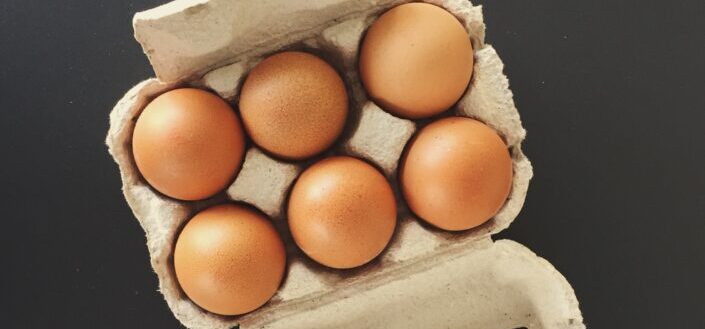
via: Unsplash / Fabrizio Bucella
To maintain a steady temperature, you should put eggs in the refrigerator's main body rather than on the refrigerator door. Raw egg whites and yolks should be stored in airtight containers in the fridge as soon as possible. Eggs last for around 3 to 5 weeks in the refrigerator.
More Awesome Articles You Can Explore
Eggs aren't the only thing from nature that you should know more about. We have more awesome articles for you to widen your knowledge about food and plants.
- These types of candy should be all you need to satisfy your sweet tooth.
- Taking care of plants is a fun activity to enjoy, but knowing the types of orchids can help you figure out which ones will work best for you.
- Learn about which ferns you should grow with this detailed guide on the types of ferns.
In Conclusion
We hope that this detailed list of the types of eggs helps you navigate through different egg products. Knowing the egg types can help you cook eggs in a better way! You can now come up with a more creative dish!

